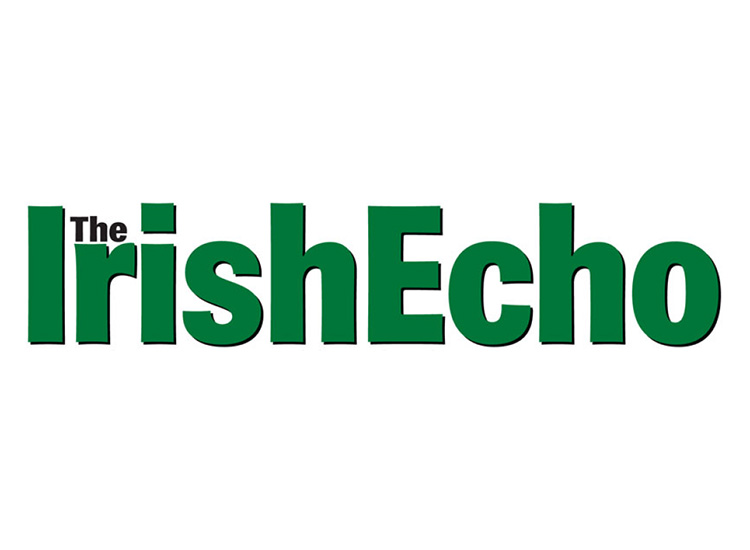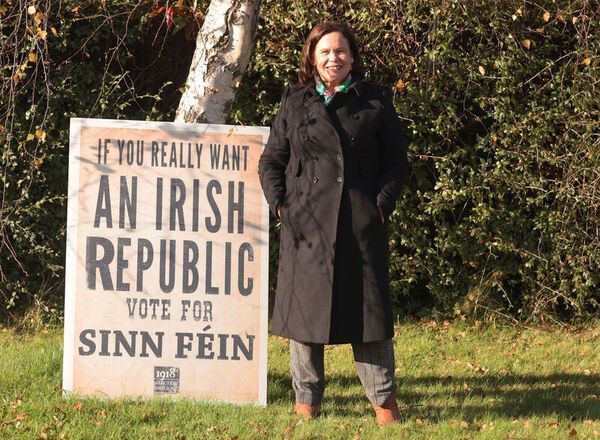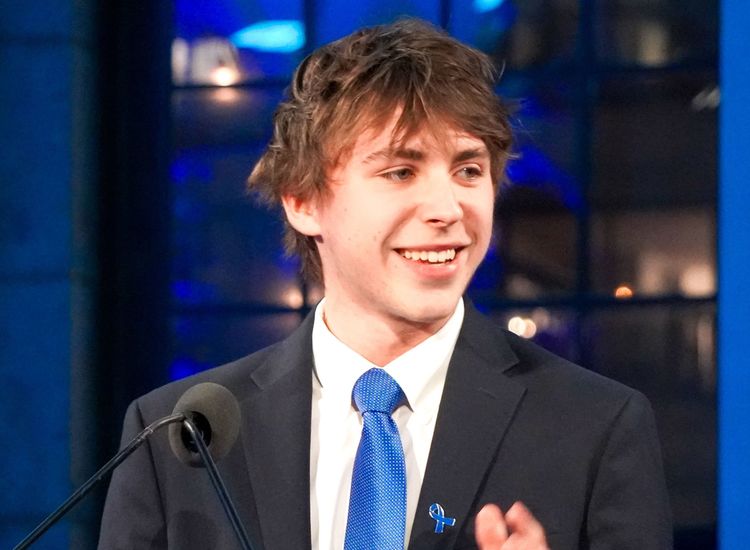In Northeastern Ireland, in the statelet that is known by a number of names: the Six Counties, Northern Ireland, the North of Ireland, Ulster, or the United Kingdom, the population is divided into two major communities: one describes itself as Irish; the other describes itself as British.
This is the home turf of golfer Rory McIlroy, and there is an ongoing debate over which community he belongs in.
The British community are the descendants of British settlers who were brought into Ireland in the early 17th Century to settle on land confiscated from the native Irish.
The Irish community are descendants of the Irish whose land was confiscated by the British.
The Irish community shares a culture with the rest of the Irish living on the island and they refuse to accept the British claim that the "Six Counties" are part of the United Kingdom. The British community claim an affinity with the British living across the Irish Sea and refuse to accept the Irish claim that the "Six Counties" are part of Ireland.
The northeastern part of Ireland was carved out of a nine-county Ulster, one of Ireland's four provinces, in the early 1920s, as a refuge for Protestant unionists who did not want to live in a newly independent Ireland that would be dominated by Catholic. Of the six counties involved, two had a heavy Protestant majority, two had a Catholic majority, and the other two had almost equal populations of Catholics and Protestants.
The creation of these six counties as "a Protestant state for a Protestant people" caused a furious reaction by the Catholics in the affected areas and a civil war erupted which created more damage than the War of Independence.
Since that time, two distinct tribes have evolved in this area. The British tribe has a siege mentality and its members are convinced that the Irish tribe are forever plotting to drive them back to the British mainland. Given the long military campaign waged by the IRA to unite Ireland, it is obvious that there is some substance to the Protestant paranoia.
The Irish tribe believes they were betrayed back in the 1920s and were abandoned when the rest of Ireland gained its independence. And over the years they know that the Dublin government did nothing to assist the Northern Irish who were persecuted by one of the most bigoted administrations in Europe.
The long war involving the IRA, the Protestant police, Protestant extremists and the British army continued until both sides recognized that total victory could not be won by either side. The British community realized that a Protestant state for a Protestant people was no longer possible; the Catholics knew that they were not going to be able to drive the British out of Ireland. So, a compromise was worked out in which power and opportunity would be shared by both communities. And this is the situation that exists at present.
It would be a mistake to come to the conclusion that the fraternal relations that exist between Catholics and Protestants in the Irish Republic is now also present in "Northern Ireland." The cessation of violence has not resulted in fraternity or ethnic tolerance.
Some in the Protestant/unionist community are bitter about being forced to share power with Catholics, and they openly express contempt for the Catholic leaders who are part of the new Northern Ireland government. And they are bitter about the way British government leaders in London express such friendship to the Irish Republic and the Irish people of Ireland.
Up in the northeast, even though there is no apparent physical border in existence at present, religion and ethnic background become instantly important. In the northeast, a religious affiliation defines one's ethnic identity. If you are Catholic, you are Irish, if you are Protestant you are British. Stand at the border between County Monaghan andCounty Tyrone and observe the landscape of beautiful green fields as far as the eye can see.
Monaghan is one of the three Ulster counties in the Republic; Tyrone is one of the six Ulster counties claimed by the UK. Both have Catholic majorities. But a Protestant farmer in Tyrone will tell you he is British and Tyrone is part of the UK. And he will do so even though he is a minority that is surrounded by farmers who claim Irish citizenship.
Protestants, more often than not, carry British passports. Catholics usually travel on Irish passports and rejectoutright any notion that they are British.
Famous Ulster Catholics like Brian Friel, John Hume or John Duddy always identify with Ireland, and the well-known group, Celtic Thunder, which is based in Derry, is known worldwide as an Irish group, not as a group from Northern Ireland.
Ulster Protestant celebrities, such as Van Morrison or James Galway, interestingly, are in no hurry to emphasize their British roots when they are abroad and are usually presented as Irish celebrities, a characterization they do not dispute. It is only when they are back in Ireland that they make it clear where their identity rests. I am sure they take this approach because it would be too much of a hassle for them to try to explain to foreigners why they consider themselves British, even though they were born in Ireland.
Which brings us to the Rory McIlroy dilemma. Rory is an extremely talented young golfer from County Down who recently won the U.S. Open at the ripe old age of 22. He became a world wide celebrity and became the darling of the Irish media, who claimed him as one of their own.
The Irish media could hardly be blamed for considering him an Irish superstar. He is Catholic, the family is into Gaelic sports, and a great uncle had been murdered for trying to integrate his Catholic family into a segregated Protestant neighborhood.
But within days of his big win, McIlroy began to use terminology that suggested that he was not one of those northern Catholics like Brien Friel or John Hume, who make no bones about their Irish identity. Instead, he called himself Northern Irish, and he began to promote Northern Ireland as a "beautiful place to grow up in." He has even talked about competing for Britain in the next Olympic Games. He seems to stay away from describing himself as just plain Irish.
McIlroy added a little more to the matter when he was questioned about his ethnic identity by Piers Morgan, who interviewed him on CNN. Piers Morgan was born in England to an Irish mother named O'Meara. He always presents himself as an Irishman.
Morgan started off the interview by saying that it was great to have another Irishman on the show, but McIlroy did not respond to this. Later Morgan said there was some controversy over McIlroy's ethnic background, and bluntly asked him if he were British or Irish.
McIlroy said he knew there would always be controversy over this issue, but he danced around the issue by saying he considered himself Northern Irish, avoiding the choice of Irish or British. Then he said he traveled on a British passport.
McIlroy's reply did not satisfy Morgan, but he did not pursue the issue.
It appears that McIlroy has a problem with this Catholic/Protestant ethnic identity issue. He was raised in an area that is 90 percent Protestant, and he received a lot of encouragement from his Protestant neighbors. He attended a non- sectarian high school and became friends with many Protestants his own age. His girlfriend is a Protestant. Given this, if he were to tell Piers Morgan that he was proud to be an Irishman, or that he traveled on an Irish passport, he might have seriously jeopardized some relationships. So he tried to have it both ways by saying he was a Northern Ireland champion.
Some American Irish will be confused by McIlroy's political/ethnic identity, but unless he continues to express primary loyalty to Britain, they will continue to see him as an Irishman. The southern Irish, however, may be a little puzzled by McIlroy's words.
In the Bogside in Derry, meanwhile, and on the Falls Road in Belfast, there is no qualifying one's identity. You are either Irish or British.
There is a joke about a census taker going door to door in Belfast filling out a census form for each household. In one house, when he comes to the question about religion, the head of the household says he is an Agnostic, an unsatisfactory response for the census taker because the form had only two choices, Catholic or Protestant. So the census taker asks him if he were a Protestant Agnostic or a Catholic Agnostic.
Rory McIlroy, despite his great talent, is just the latest celebrity from Ireland having to deal with this kind of identity parsing.
For many years, Patrick Campbell penned the Echo's "Campbell's Scoop" column.











